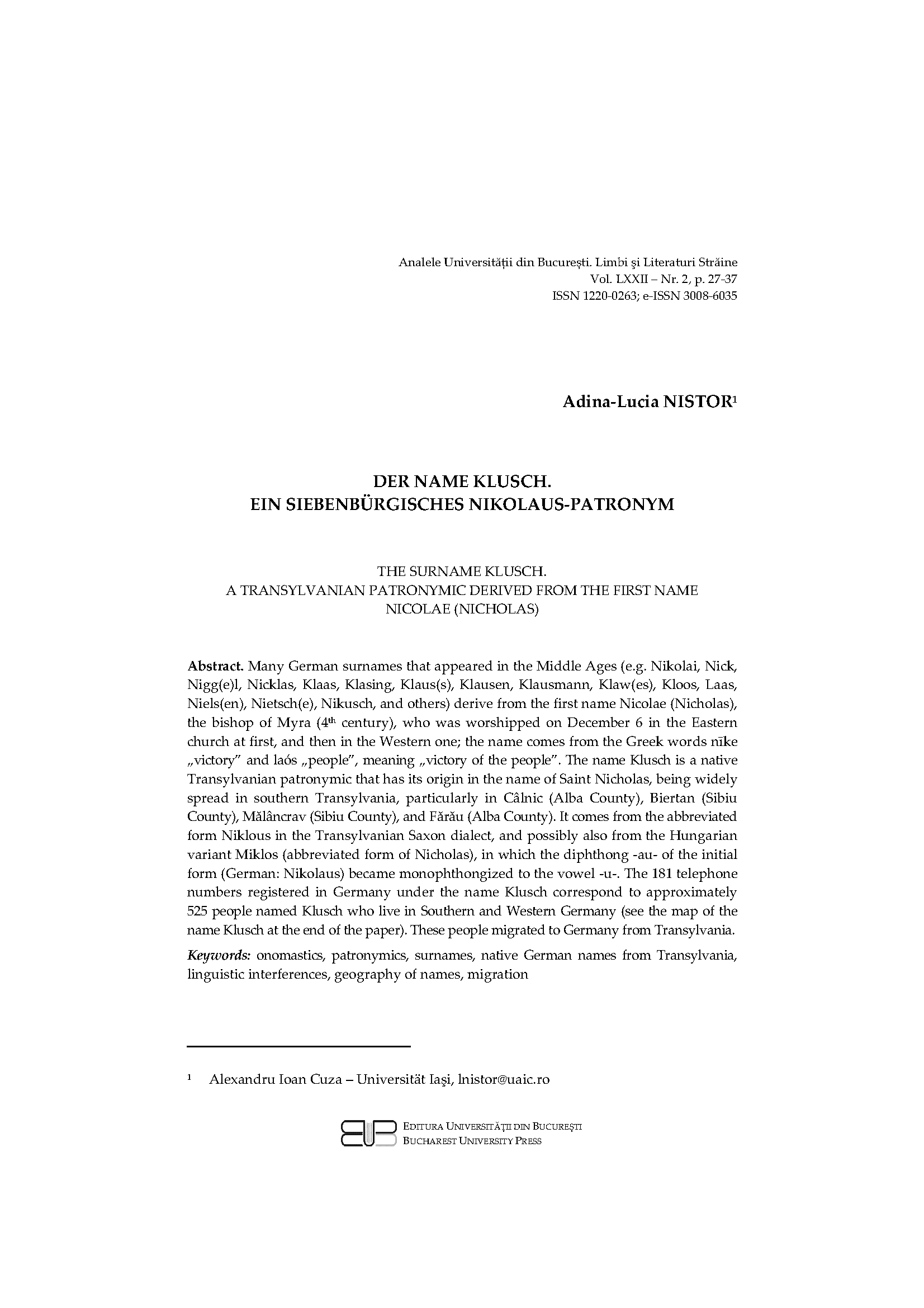DER NAME KLUSCH. EIN SIEBENBÜRGISCHES NIKOLAUS-PATRONYM
DOI:
https://doi.org/10.62229/aubllslxxii/2_23/2Cuvinte cheie:
onomastics, patronymics, surnames, native German names from Transylvania, linguistic interferences, geography of names, migrationRezumat
Many German surnames that appeared in the Middle Ages (e.g. Nikolai, Nick, Nigg(e)l, Nicklas, Klaas, Klasing, Klaus(s), Klausen, Klausmann, Klaw(es), Kloos, Laas, Niels(en), Nietsch(e), Nikusch, and others) derive from the first name Nicolae (Nicholas), the bishop of Myra (4th century), who was worshipped on December 6 in the Eastern church at first, and then in the Western one; the name comes from the Greek words nīke „victory” and laós „people”, meaning „victory of the people”. The name Klusch is a native
Transylvanian patronymic that has its origin in the name of Saint Nicholas, being widely spread in southern Transylvania, particularly in Câlnic (Alba County), Biertan (Sibiu County), Mălâncrav (Sibiu County), and Fărău (Alba County). It comes from the abbreviated form Niklous in the Transylvanian Saxon dialect, and possibly also from the Hungarian variant Miklos (abbreviated form of Nicholas), in which the diphthong -au- of the initial form (German: Nikolaus) became monophthongized to the vowel -u-. The 181 telephone
numbers registered in Germany under the name Klusch correspond to approximately 525 people named Klusch who live in Southern and Western Germany (see the map of the name Klusch at the end of the paper). These people migrated to Germany from Transylvania.




